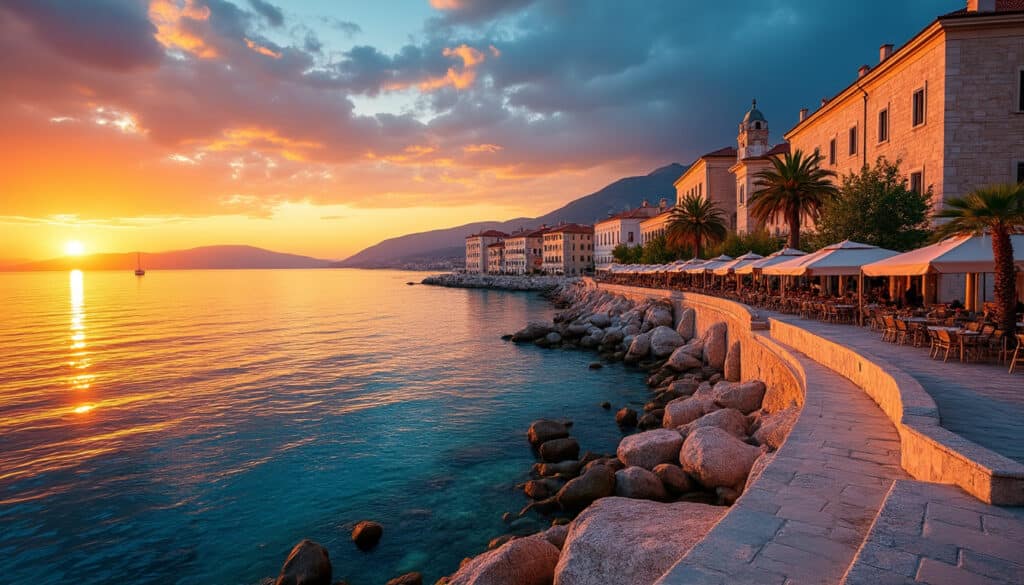Split, a picturesque city perched on the Dalmatian Coast of Croatia, is renowned for its stunning blend of ancient history and vibrant modern life. For both locals and tourists, understanding the nuances of its weather is crucial in ensuring a memorable visit. Enveloped by a Mediterranean climate, Split boasts warm summers, mild winters, and moderate rainfall throughout the year. This article delves into the temperatures of Split, offering insights and guidance on how to navigate the city’s ever-changing climate. So whether you’re planning your next adventure or simply curious about this coastal gem, read on to discover more about the interplay of elements that define Split’s unique weather patterns.
Understanding Split’s Mediterranean Climate
Split enjoys a Mediterranean climate, which means hot, dry summers and mild, wet winters. Such conditions are typical for coastal cities along the Adriatic Sea and significantly influence the activities and lifestyles of its residents. As you plan your visit or day-to-day activities in Split, it’s essential to be aware of how this climate impacts temperatures and weather conditions and what that means for you.
During the summer months, which span from June to September, temperatures in Split often soar to the high 20s and even into the low 30s Celsius (approximately 77 to 86 degrees Fahrenheit). The heat is usually softened by coastal breezes, making it a popular time for beach activities and water sports. For those who enjoy exploring the city’s rich cultural sites, the longer daylight hours also offer a pleasant experience. However, packing essentials like sunscreen, light clothing, and a wide-brimmed hat is crucial to shield yourself from the intense sun. A quick reference guide to summertime staples:
- 🌞 Sunscreen – To protect from UV rays
- 👒 Hat – For additional shade
- 👕 Light clothing – To stay cool
- 🍶 Water bottle – Stay hydrated in the heat
Contrastingly, the winter season in Split, lasting from December to February, showcases a different facet of the city with average temperatures ranging between 5 to 15 degrees Celsius (41 to 59 degrees Fahrenheit). While snow is rare, the city experiences frequent rain showers, and evenings can become chilly. This is a period when the city comes alive in a different way, with cultural events and less crowded historical sites offering a unique experience.
| Month | Avg High (°C) | Avg Low (°C) | Precipitation (mm) | Description |
|---|---|---|---|---|
| June | 16 | 10 | 34 | Warm and sunny 🌞 |
| January | 12 | 5 | 103 | Cool and Wet 🌧️ |
It’s also crucial for visitors to note that the city’s Mediterranean climate influences local customs and attire. Wearing adaptable clothing to fit both warm afternoons and cooler evenings is advisable. For further advice on what to pack, consider checking packing suggestions for Split across different seasons.
Adaptive Strategies for Changing Weather
The fluctuation of temperatures in Split calls for a flexible approach when planning activities. During cooler months, enjoying indoor attractions like museums or the famed Diocletian’s Palace, with its rich history, allows for a comfortable yet culturally immersive experience. When the sun is blazing, taking advantage of Split’s numerous beaches offers refreshing relief. As weather in Split can indeed surprise the unprepared, having a versatile wardrobe can significantly enhance your experience.
Clothing brands known for their adaptation to different climates include The North Face, Columbia, Patagonia, and Marmot, offering a range adaptable to Split’s climate. Meanwhile, Helly Hansen and Arc’teryx provide waterproof options for surprise rain showers, ideal for maintaining comfort while exploring the city.
For prospective travelers planning their route through Split, consulting Europe-specific travel gear available at REI Co-op and using layering solutions from Smartwool can further aid in dealing with Split’s occasional chill.
Seasonal Highlights and Local Gatherings
The cultural calendar of Split is as rich as its climate is varied, with different seasons offering unique events and festivals. The summer months invite a plethora of outdoor festivals, concerts, and events that capitalize on the chest of warm evenings. One popular event is the Split Summer Festival, which transforms the city into an open-air theater featuring music, theater, and dance. This festival illustrates how inhabitants and tourists alike embrace the warmth and evenings under the stars.
As the city transitions into fall, temperatures cool off slightly, offering a synergy of warmth and relief. This period is ideal for exploring local vineyards and olive groves, often accompanied by seasonal tasting tours. Such activities offer visitors an authentic taste of Dalmatian life, as food and wine are fundamental to the local culture. The usage of the right gear is once again highlighted by events that extend into the night: layering becomes essential with Icebreaker’s merino wool products coming into play for their natural temperature-regulating properties.
Split’s winter scene is illustrated by holiday lights and festivals that blend traditional customs with modern interpretations. During this season, layers are important, incorporating clothing from brands like Mountain Hardwear to navigate any unexpected chill.
Impact of Geography on Split’s Weather
The geographical location of Split plays a significant role in its distinctive weather patterns. Situated on the eastern shore of the Adriatic Sea, the city is nestled between mountain ranges and coastal waters, creating a unique microclimate. The surrounding Dinaric Alps serve as a barrier protecting the city from the harsh interior weather, while the sea exerts a moderating effect on temperatures, leading to mild conditions. Moreover, from spring to fall, Split is often subject to the Bora wind, a gusty northeastern wind known for ushering clear skies and cool air into the region.
The meeting of natural forces in Split illustrates the symbiotic relationship between terrain and weather, shaping not only the climate but also local agricultural practices. For instance, the famed Dalmatian olive oil and wine production are influenced by these climatic elements, providing an authentic taste of Split’s terroir.
To dive deeper into how Split’s geography impacts its climate and the unique characteristics of its microclimate, travelers can find a more detailed guide on what to expect when visiting Split in various seasons.
Practical Tips for a Comfortable Stay in Split
To make the most of a visit to Split, understanding its climate and how it interplays with daily life is essential. The city offers a treasure trove of experiences that vary with the seasons, each complemented by necessary adaptations for the weather. Here are some practical tips for any traveler:
- 📅 Check weather forecasts regularly: Websites like AccuWeather offer updates on potential climate shifts.
- 🧳 Pack smart: Light layers in summer, and water-resistant attire for unexpected showers, can be acquired from local stores.
- 🎒 Carry essentials: A small backpack is perfect for carrying weather essentials, including sunscreen and an umbrella.
- 🗺️ Plan flexible itineraries: Weather can impact schedules, so keep plans adaptable to make the most of your visit.
| Season | Pack Essentials | Activities | Weather Condition |
|---|---|---|---|
| Summer | Sunscreen, Hat | Beach, Festivals | Hot and Sunny 🌞 |
| Winter | Jacket, Umbrella | Cultural Tours | Cool and Wet 🌧️ |
Remember that while Split’s climate is mostly predictable due to its Mediterranean nature, the coastal influences can result in swift changes. Staying informed and prepared ensures that you can savor all that Split has to offer, regardless of the weather.
Seasonal Wardrobe Recommendations
Split’s solutions for wardrobe planning can be as dynamic as its climate. Here are some seasonal gear suggestions for those visiting:
- 👕 Light breathable clothing for summer, with brands like Columbia and Patagonia providing excellent choices.
- 🧥 Warm, layered attire for winter comfort, easily sourced from brands like Mountain Hardwear and Helly Hansen.
- 🌂 Weather-resistant accessories, from Arc’teryx rain jackets to Icebreaker wool socks for unexpected chilly days.
For tailored recommendations on attire, take a look at the dressing guides based on Split’s month-to-month climate variations.
FAQ
Here are some frequently asked questions about temperatures and clothes for Split:
- What is the best time to visit Split? – Late spring (May) and early fall (September) often provide pleasant weather with fewer crowds.
- How should I dress for Split in summer? – Go for lightweight, breathable fabrics and accessorize with sun protection such as hats and sunglasses.
- Is it necessary to bring waterproof clothing? – While not always necessary, having a lightweight waterproof jacket is advisable, especially during the fall and winter months.
- Are temperatures in Split suitable for year-round travel? – Yes, Split’s climate offers attractions throughout the year, with activities that align with each season’s unique charm.
- What brands are popular for outdoor gear in Split? – Popular brands include REI Co-op, Smartwool, and Marmot for quality outdoor wear.
With these guidelines, enjoy your visit to Split, fully prepared to face its beautiful Mediterranean climate!
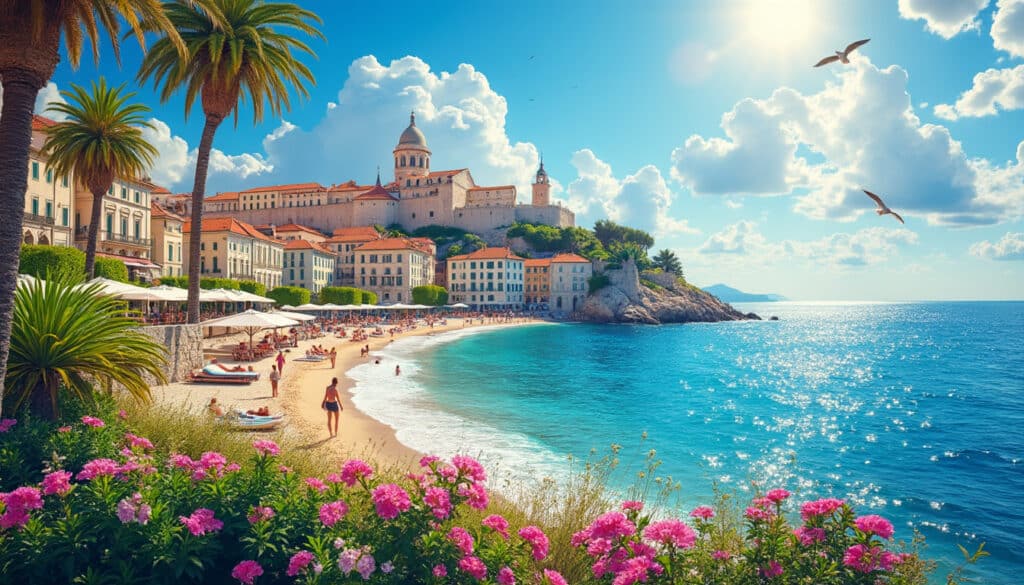
Embracing the picturesque views of the Dalmatian Coast, Split is not only a haven for history enthusiasts but also an intriguing destination due to its unique Mediterranean climate. This city perfectly combines cultural richness with weather nuances, offering a spectrum…
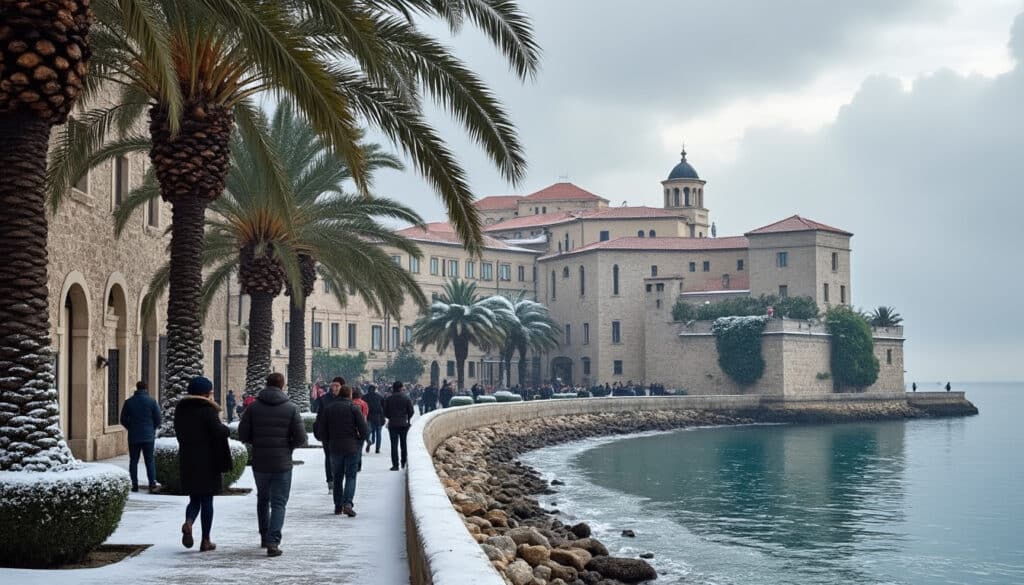
While Split, Croatia is widely celebrated for its radiant summers with tourists flocking to its historic sites and fetching beaches, the cold weather presents a different yet equally captivating charm. As a local guide with a keen interest in history,…
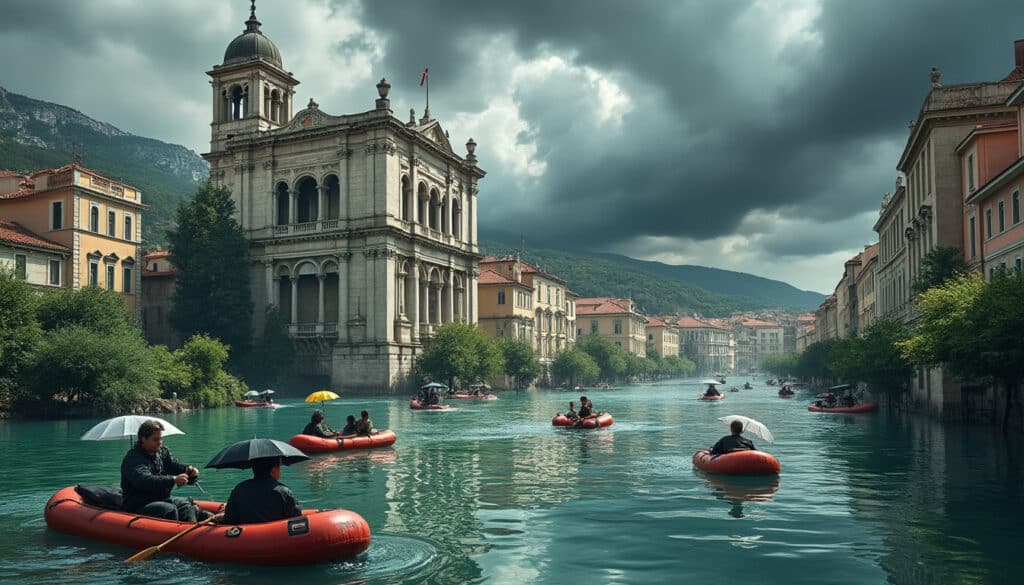
Flooding and natural risks in Split
The picturesque city of Split, renowned for its stunning architecture and rich history, faces a delicate challenge that requires immediate attention: the management of natural risks. As a city cradled along the Adriatic coast, Split enjoys the beauty of the…
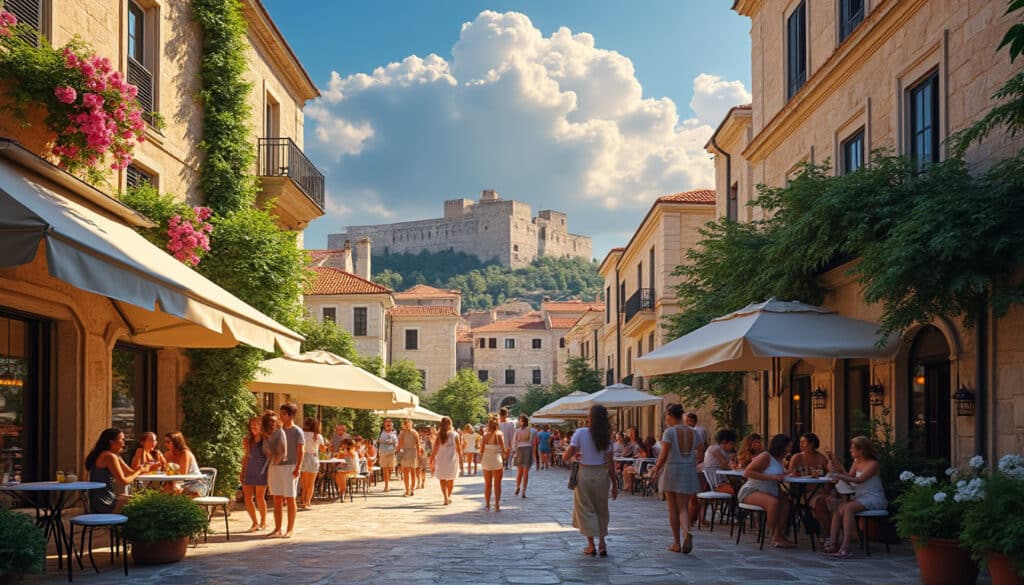
Split, Croatia is a city known for its stunning coastal views, rich history, and vibrant culture. Situated on the eastern shore of the Adriatic Sea, this picturesque location is not only famous for its architectural wonders and buzzing seafront but…

Is Split warm throughout the year?
Situated along the picturesque Adriatic coastline, Split, Croatia, is often heralded for its warm climate that seems to envelop the city with a perennial embrace. Let’s dive deep into understanding whether Split is indeed warm throughout the year and what…
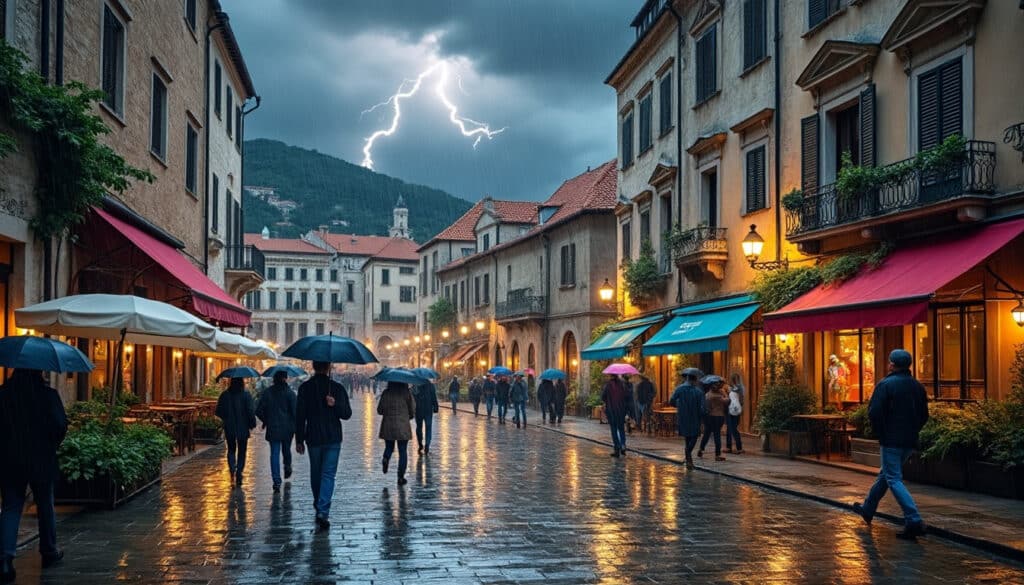
Rain and precipitation in Split
Split, the charming city located along the Dalmatian Coast in Croatia, is known for its vibrant culture, historical sites, and scenic beauty. But aside from its cultural significance, the weather patterns, including rain and precipitation, play a vital role in…

Nestled along the azure Adriatic Coast, Split offers a distinct charm that varies with each season. Whether you’re drawn to the sun-drenched beaches in the height of summer or the tranquil ambiance of its less crowded months, Split promises an…

Exploring the weather patterns of Split, Croatia, offers a fascinating glimpse into the coastal charm and unique climatic conditions of this historic city. Whether you’re planning a visit or just curious about the year-round weather, understanding the monthly climate of…
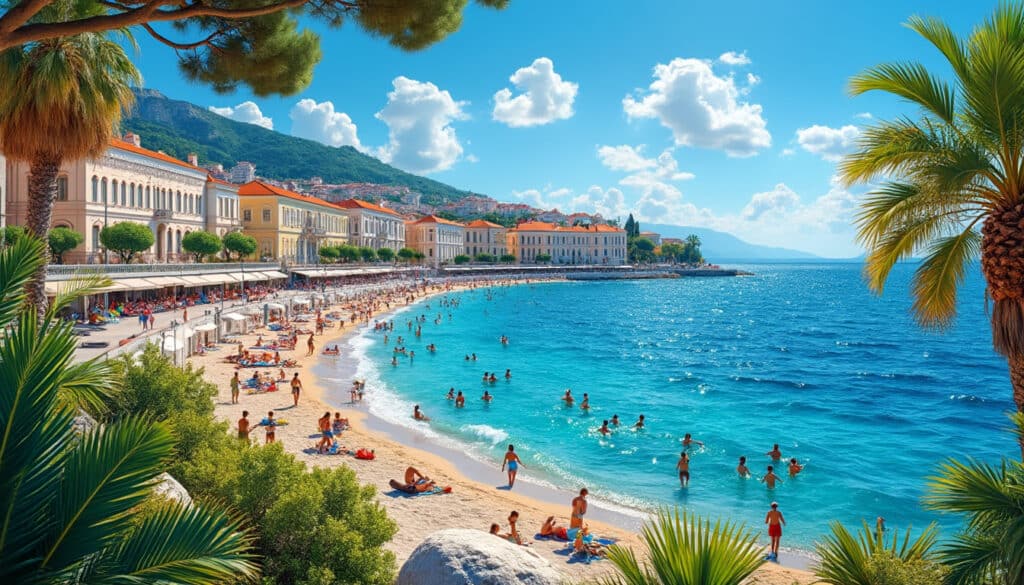
What is the weather like in Split?
Split, one of Croatia’s most vibrant coastal cities, is renowned not only for its rich cultural heritage and stunning landscapes but also for its unique climate. Travelers and residents often find themselves captivated by the mild and pleasant weather that…
In Split, a city that gracefully hugs the Dalmatian coast, the heat of summer is not just a season but a vibrant experience. The panoramic views of the Adriatic, coupled with historic charm, render Split a captivating location. Summers are…


